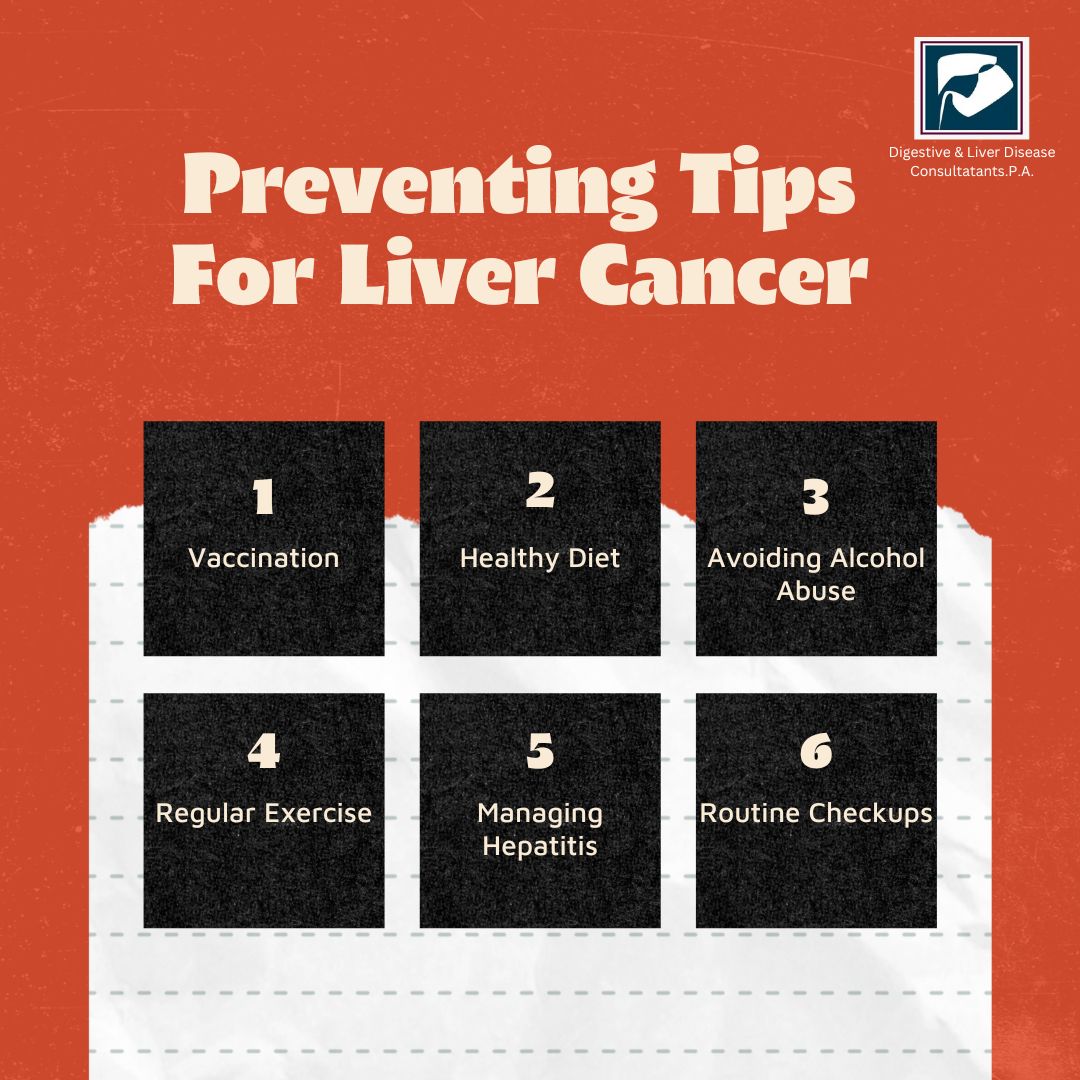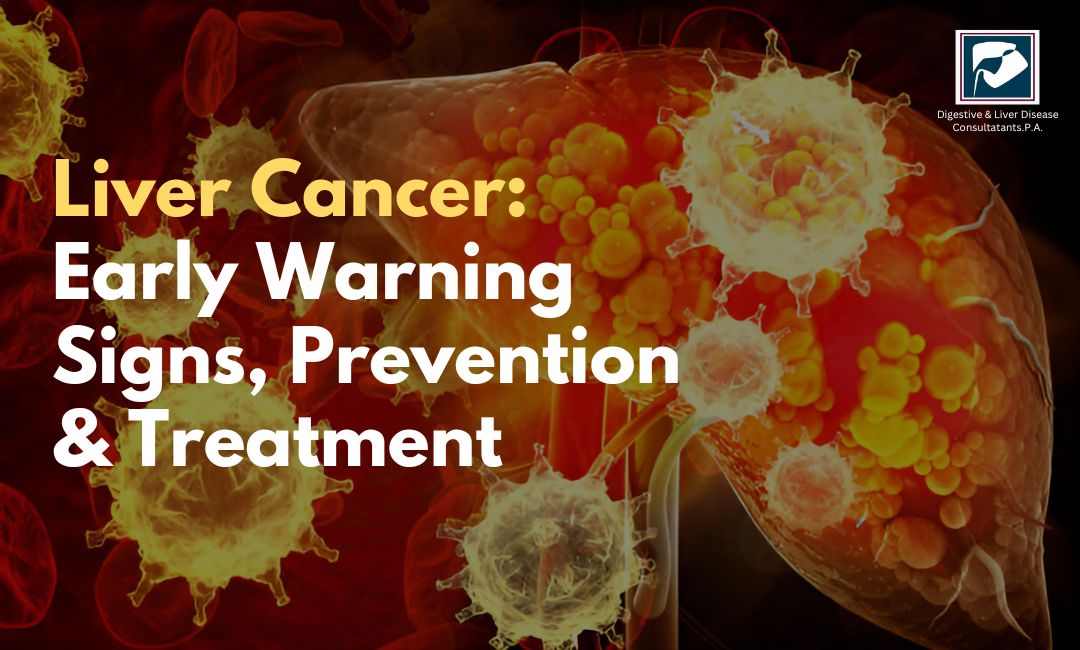Liver cancer is one of the most common and serious types of cancer worldwide. It can develop slowly over many years, often with few noticeable symptoms in its early stages. As a result, it is important to recognize the early warning signs of liver cancer and take preventive measures to protect your liver health. In this article, we’ll cover the symptoms to watch out for, how liver cancer can be prevented, and the treatment options available. If you're in the US, DLDC Clinic is here to help you with all your liver health concerns.
What is Liver Cancer?
Liver cancer, also known as hepatocellular carcinoma, begins in the cells of the liver. The liver is a vital organ that performs many crucial functions, including detoxifying the body, producing bile, and storing nutrients. When liver cancer develops, it can disrupt these essential functions and spread to other parts of the body.
Early Warning Signs of Liver Cancer
Liver cancer can be difficult to detect in its early stages because the symptoms often don’t appear until the cancer has advanced. However, recognizing these early warning signs could help catch the disease in time:
Unexplained Weight Loss: Sudden, unexplained weight loss is a common sign of many cancers, including liver cancer. If you’re losing weight without changing your diet or exercise routine, it’s worth consulting a doctor.
Pain or Discomfort in the Upper Abdomen: Pain or a dull ache in the right side of your upper abdomen could be a sign that something is wrong with your liver. As the liver grows larger, it can press against surrounding organs, causing discomfort.
Jaundice (Yellowing of the Skin or Eyes): Jaundice is a yellowish tint to the skin or eyes, which occurs when the liver can’t process bilirubin effectively. This can be a sign of liver disease, including cancer.
Swelling or Bloating: Liver cancer can cause fluid buildup in the abdomen, leading to swelling or bloating. This condition is known as ascites and can be uncomfortable or even painful.
Fatigue and Weakness: Persistent fatigue, weakness, or feeling excessively tired can occur as a result of liver cancer. The body’s inability to function properly due to liver damage can leave you feeling drained.
Loss of Appetite: If you find that you’re suddenly not interested in food or have a decreased appetite, this could be a symptom of liver cancer or other liver diseases.
Nausea and Vomiting: Chronic nausea or vomiting, particularly when accompanied by other symptoms like weight loss or abdominal pain, may indicate liver issues.
Itchy Skin: Itchy or dry skin is another possible symptom of liver disease, which may be linked to liver cancer.
Risk Factors for Liver Cancer
Several factors can increase your risk of developing liver cancer, including:
Chronic Liver Diseases: Conditions like hepatitis B or C, cirrhosis, and fatty liver disease can increase your chances of developing liver cancer.
Excessive Alcohol Use: Drinking large amounts of alcohol over many years can lead to liver damage and increase your risk of liver cancer.
Obesity: Obesity and being overweight are linked to fatty liver disease, which can increase the risk of liver cancer.
Age and Gender: Liver cancer is more common in people over 50, and men are at higher risk than women.
Family History: A family history of liver disease or cancer can increase your chances of developing liver cancer.

Preventing Liver Cancer
While some risk factors for liver cancer can’t be avoided, there are steps you can take to lower your chances of developing the disease:
Vaccination: Vaccinating against hepatitis B can significantly reduce your risk of liver cancer. Hepatitis B is a leading cause of liver cancer worldwide.
Healthy Diet: Eating a well-balanced diet rich in fruits, vegetables, whole grains, and healthy fats can help protect your liver. Avoiding excessive alcohol and reducing the intake of processed foods is also important for liver health.
Avoiding Alcohol Abuse: Limiting alcohol consumption or completely avoiding it can protect your liver from damage and reduce the risk of developing liver cancer.
Regular Exercise: Staying physically active can help you maintain a healthy weight and prevent fatty liver disease, which can lead to liver cancer.
Managing Hepatitis: If you have hepatitis B or C, working with your healthcare provider to manage the disease is essential. Early treatment can reduce the risk of liver cancer.
Routine Checkups: If you're at risk for liver cancer due to existing liver conditions or family history, regular checkups are essential. These checkups can help catch early signs of liver cancer before it becomes more advanced.
Treatment Options for Liver Cancer
If diagnosed with liver cancer, there are several treatment options available. Your doctor will choose the best approach based on the stage of cancer, the overall health of your liver, and your personal health needs. Treatments may include:
Surgery: In some cases, surgical removal of the tumor may be possible if the cancer is confined to one area of the liver.
Liver Transplantation: If the cancer is widespread or if the liver is too damaged for other treatments, a liver transplant may be recommended.
Ablation Therapy: This includes techniques such as radiofrequency ablation or cryoablation to destroy the cancerous tissue without removing the liver.
Chemotherapy and Radiation: These treatments may be used to shrink tumors or manage symptoms of advanced liver cancer.
Targeted Therapy: This treatment uses drugs that specifically target cancer cells and prevent their growth.
Conclusion
Liver cancer can be a silent disease, and its symptoms may not show up until the cancer has advanced. Being aware of the early warning signs and taking preventive steps to maintain a healthy liver is essential in reducing the risk of liver cancer.
If you suffer from any of these symptoms or are concerned about liver cancer, don’t wait. Contact DLDC Clinic today for an appointment with our best experienced doctors.






